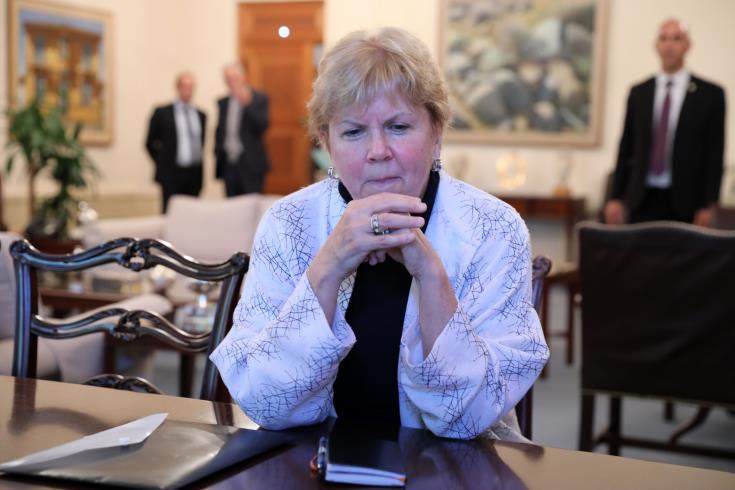In late January, the United Nations special envoy for Cyprus Jane Holl Lute said “there’s growing scepticism as to whether reunification is still possible”. The UNSG noted in his year-end report that the decrease in intercommunal contacts, compounded by Covid restrictions, had posed significant challenges to efforts during the year.
The biggest shift was the election of anti-reunification candidate Ersin Tatar and the ouster of Mustafa Akinci as Turkish Cypriot leader in October, further setting back efforts and a change of tack on the Turkish Cypriot side towards a two-state solution.
A morning with new Turkish Cypriot ‘premier’ Ersin Tatar
Tatar had been elected ‘prime minister’ in 2019. He has been described by those Turkish Cypriots who know him as “very smart, extremely active and straightforward, quick-minded and innovative” with a “realistic outlook” and not afraid of having new ideas. Indeed, his new ideas embrace a two-state solution and recognition of the north’s sovereignty before any new negotiations can start.
Ersin Tatar is more middle-class Nicosia than Black Sea
After he moved from ‘prime minister’ to Turkish Cypriot leader in just over a year, Tatar not only wasted no time in turning the negotiations process on its head with his Ankara-backed ‘new ideas’ but he also greenlit the opening of the fenced-off part of Famagusta known as Varosha that had lain abandoned since 1974 in the most provocative manner that caused untold grief to thousands of Greek Cypriot refugees.
The year we realised Varosha could be lost
Tatar and Nicos Anastasiades did deign to meet on November 3, 2020 under the auspices of the UN. They went in with opposing positions and came out the same way. Tatar said however he was willing to participate in an informal five-party summit but that other ideas – Turkey’s ideas – ought to be put on the table as well.

